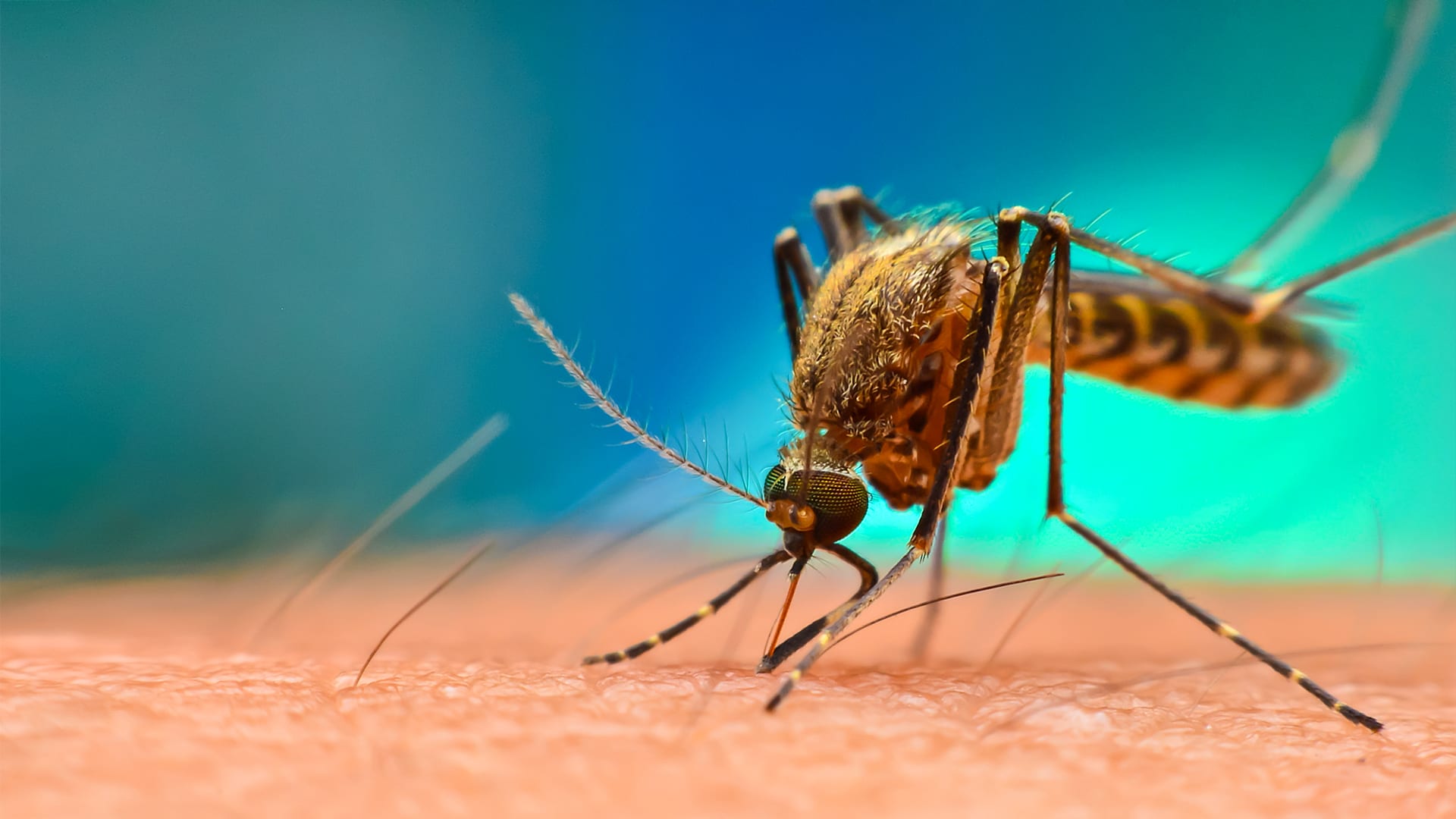Scroll for prep

Please wait…
This video is having trouble loading. You may have lost your Internet connection.
Step 1: Click to Reload this page
Step 2: Click to
Try our other video player
Step 3: contact support if trouble persists.
Or,
dismiss this message.
DISCUSS:
How do you think mosquitoes could be dangerous?
Hint...
Could sucking blood have something to do with it?

Please wait…
This video is having trouble loading. You may have lost your Internet connection.
Step 1: Click to Reload this page
Step 2: Click to
Try our other video player
Step 3: contact support if trouble persists.
Or,
dismiss this message.

Please wait…
This video is having trouble loading. You may have lost your Internet connection.
Step 1: Click to Reload this page
Step 2: Click to
Try our other video player
Step 3: contact support if trouble persists.
Or,
dismiss this message.
DISCUSS:
Why do you think there are more mosquitoes in tropical places?

Please wait…
This video is having trouble loading. You may have lost your Internet connection.
Step 1: Click to Reload this page
Step 2: Click to
Try our other video player
Step 3: contact support if trouble persists.
Or,
dismiss this message.
DISCUSS:
Given what you’ve learned about mosquitoes and their life cycle, what are some suggestions you would give people to help them avoid getting bitten by mosquitoes after a rainy spring?

Please wait…
This video is having trouble loading. You may have lost your Internet connection.
Step 1: Click to Reload this page
Step 2: Click to
Try our other video player
Step 3: contact support if trouble persists.
Or,
dismiss this message.

Please wait…
This video is having trouble loading. You may have lost your Internet connection.
Step 1: Click to Reload this page
Step 2: Click to
Try our other video player
Step 3: contact support if trouble persists.
Or,
dismiss this message.

Please wait…
This video is having trouble loading. You may have lost your Internet connection.
Step 1: Click to Reload this page
Step 2: Click to
Try our other video player
Step 3: contact support if trouble persists.
Or,
dismiss this message.

Please wait…
This video is having trouble loading. You may have lost your Internet connection.
Step 1: Click to Reload this page
Step 2: Click to
Try our other video player
Step 3: contact support if trouble persists.
Or,
dismiss this message.

Please wait…
This video is having trouble loading. You may have lost your Internet connection.
Step 1: Click to Reload this page
Step 2: Click to
Try our other video player
Step 3: contact support if trouble persists.
Or,
dismiss this message.

Please wait…
This video is having trouble loading. You may have lost your Internet connection.
Step 1: Click to Reload this page
Step 2: Click to
Try our other video player
Step 3: contact support if trouble persists.
Or,
dismiss this message.

Please wait…
This video is having trouble loading. You may have lost your Internet connection.
Step 1: Click to Reload this page
Step 2: Click to
Try our other video player
Step 3: contact support if trouble persists.
Or,
dismiss this message.

Please wait…
This video is having trouble loading. You may have lost your Internet connection.
Step 1: Click to Reload this page
Step 2: Click to
Try our other video player
Step 3: contact support if trouble persists.
Or,
dismiss this message.

Please wait…
This video is having trouble loading. You may have lost your Internet connection.
Step 1: Click to Reload this page
Step 2: Click to
Try our other video player
Step 3: contact support if trouble persists.
Or,
dismiss this message.

Please wait…
This video is having trouble loading. You may have lost your Internet connection.
Step 1: Click to Reload this page
Step 2: Click to
Try our other video player
Step 3: contact support if trouble persists.
Or,
dismiss this message.

Please wait…
This video is having trouble loading. You may have lost your Internet connection.
Step 1: Click to Reload this page
Step 2: Click to
Try our other video player
Step 3: contact support if trouble persists.
Or,
dismiss this message.

Please wait…
This video is having trouble loading. You may have lost your Internet connection.
Step 1: Click to Reload this page
Step 2: Click to
Try our other video player
Step 3: contact support if trouble persists.
Or,
dismiss this message.

Please wait…
This video is having trouble loading. You may have lost your Internet connection.
Step 1: Click to Reload this page
Step 2: Click to
Try our other video player
Step 3: contact support if trouble persists.
Or,
dismiss this message.

Please wait…
This video is having trouble loading. You may have lost your Internet connection.
Step 1: Click to Reload this page
Step 2: Click to
Try our other video player
Step 3: contact support if trouble persists.
Or,
dismiss this message.

Please wait…
This video is having trouble loading. You may have lost your Internet connection.
Step 1: Click to Reload this page
Step 2: Click to
Try our other video player
Step 3: contact support if trouble persists.
Or,
dismiss this message.

Please wait…
This video is having trouble loading. You may have lost your Internet connection.
Step 1: Click to Reload this page
Step 2: Click to
Try our other video player
Step 3: contact support if trouble persists.
Or,
dismiss this message.

Please wait…
This video is having trouble loading. You may have lost your Internet connection.
Step 1: Click to Reload this page
Step 2: Click to
Try our other video player
Step 3: contact support if trouble persists.
Or,
dismiss this message.

Please wait…
This video is having trouble loading. You may have lost your Internet connection.
Step 1: Click to Reload this page
Step 2: Click to
Try our other video player
Step 3: contact support if trouble persists.
Or,
dismiss this message.
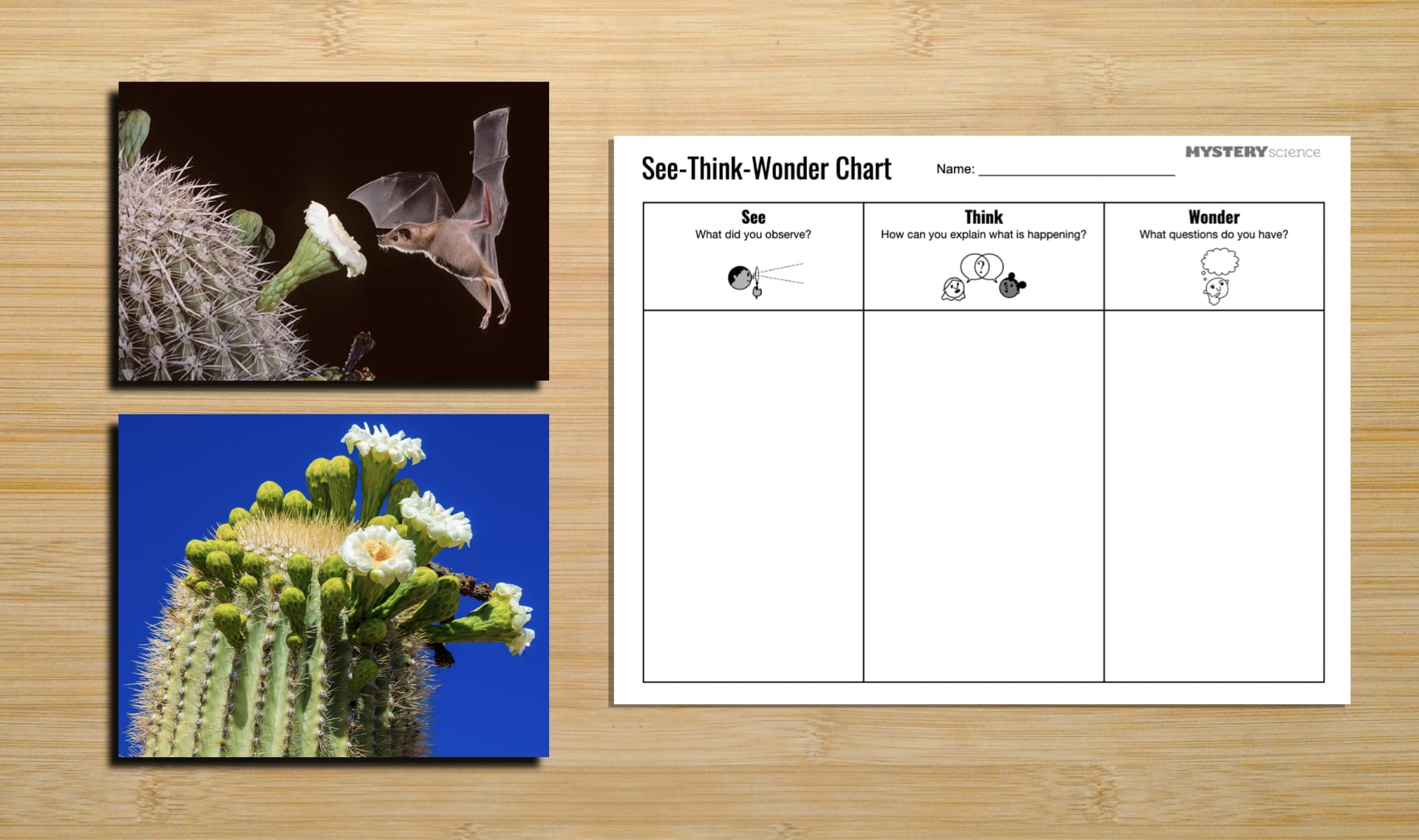
Anchor Connection
Look at the "Wonder" column of your class See-Think-Wonder chart. Have any
questions been answered by this lesson?
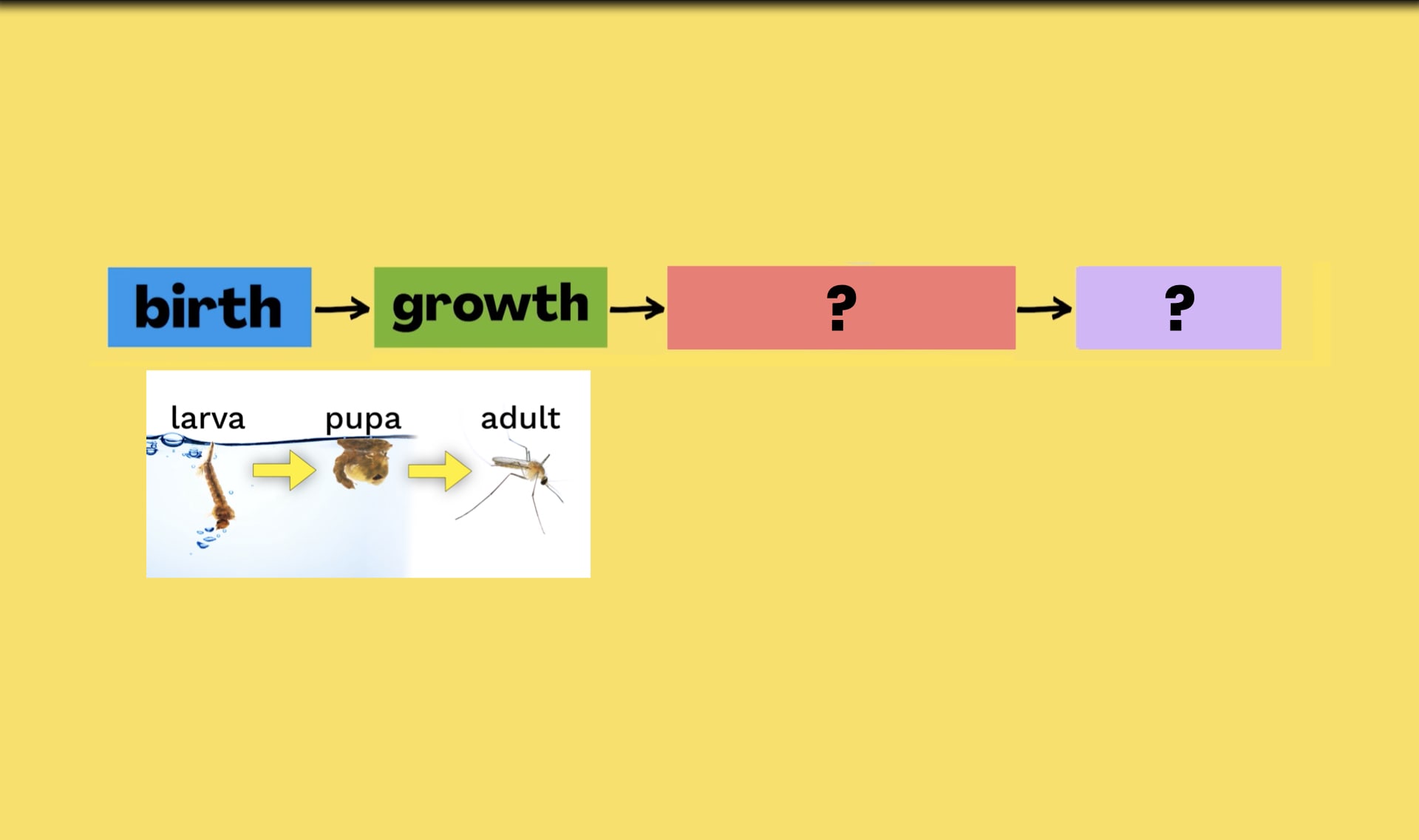
In the past lesson, you learned that mosquitoes go through life cycles just like all
other animals do. Mosquitoes are born as larva, and then grow into adults.
Discuss. Which stages of the life cycle are missing from this picture?
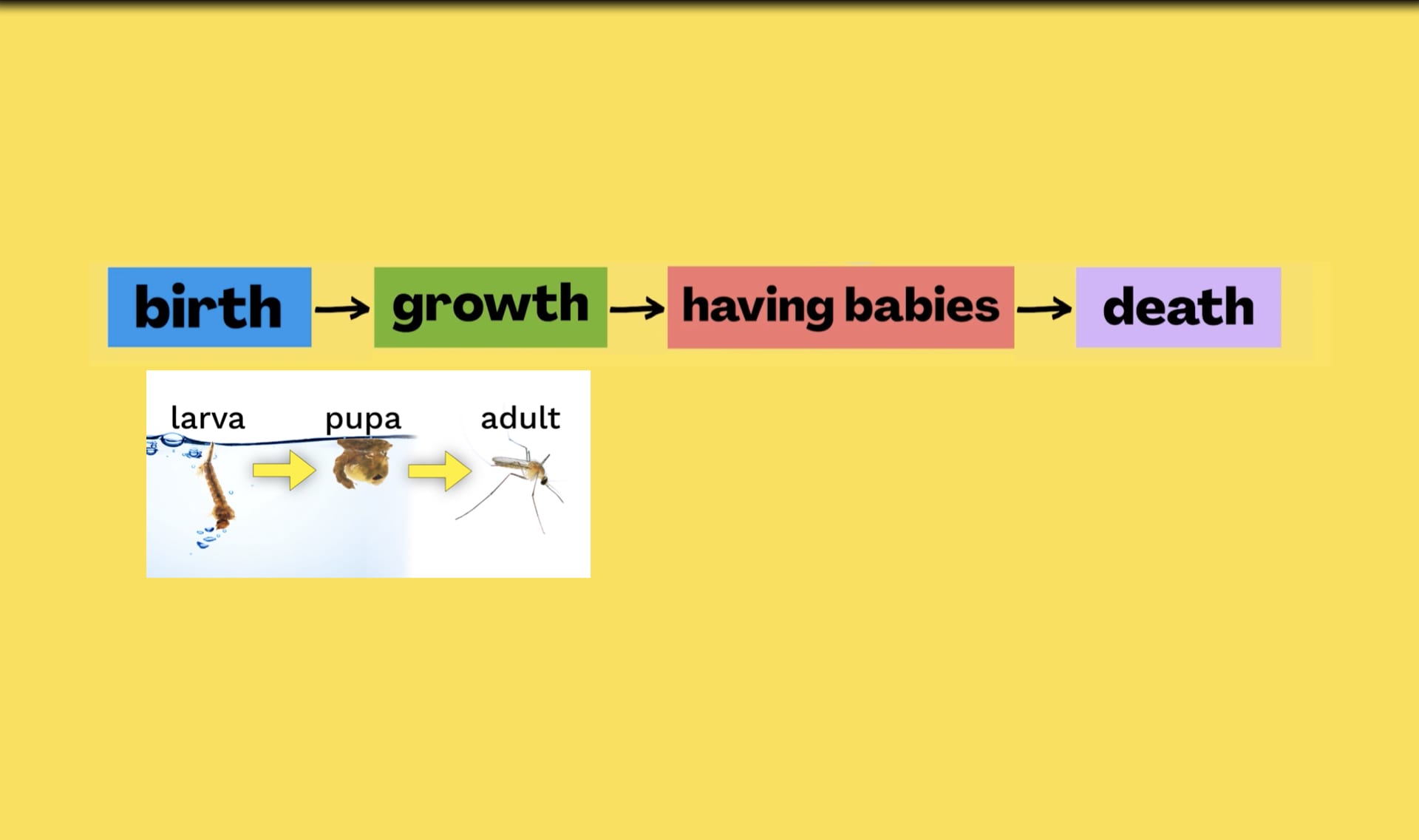
Once mosquitoes become adults, they can lay eggs. Baby mosquito larva hatch
from those eggs, which starts a new life cycle. The mosquito life cycle only lasts
for a few weeks from start to finish. They have a very short life cycle.
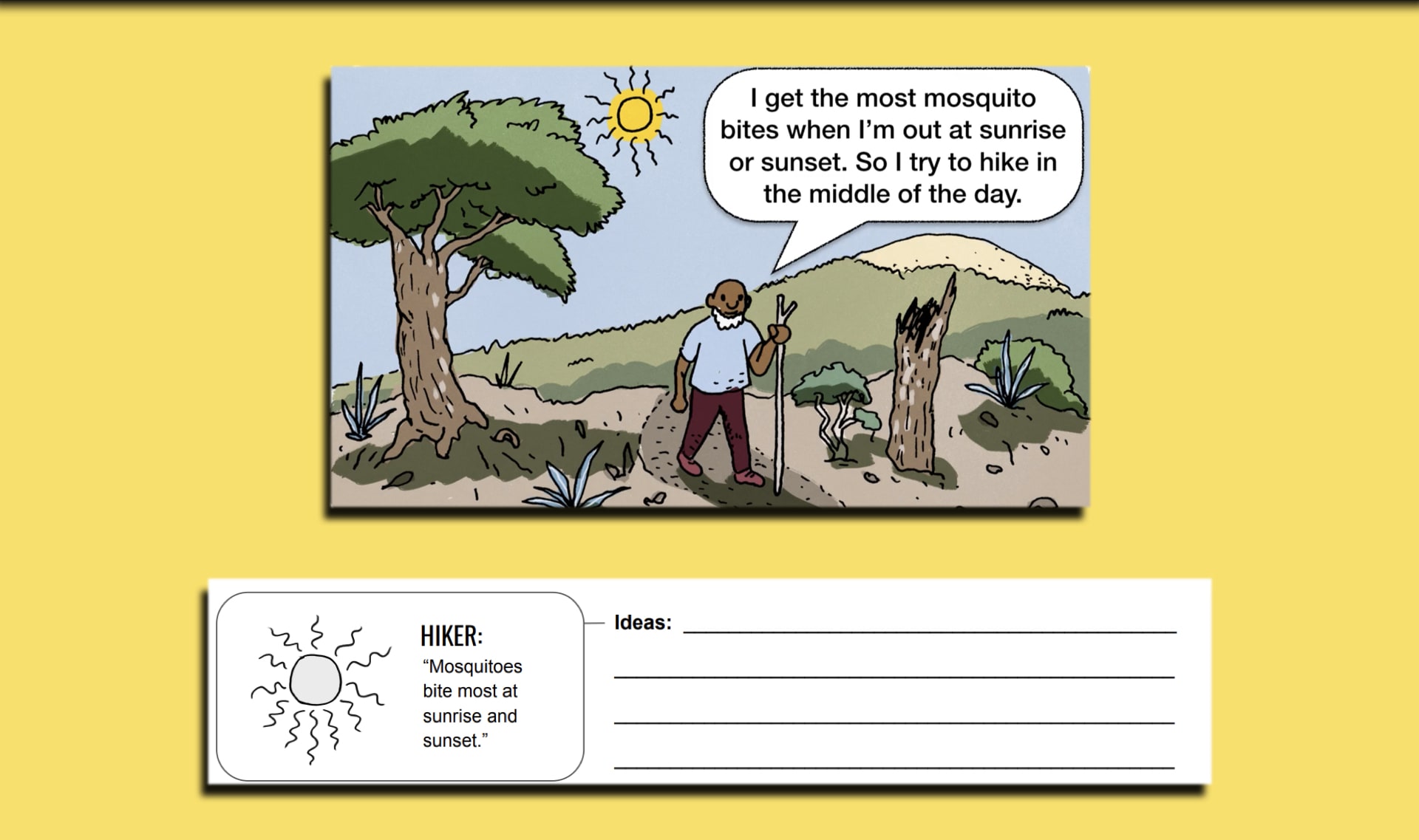
Most mosquitoes go through another very different cycle that is even shorter. It
is a cycle of hiding and coming out. It only takes one day. It happens day after day.
Read, then discuss. When do mosquitoes hide? When do they come out?
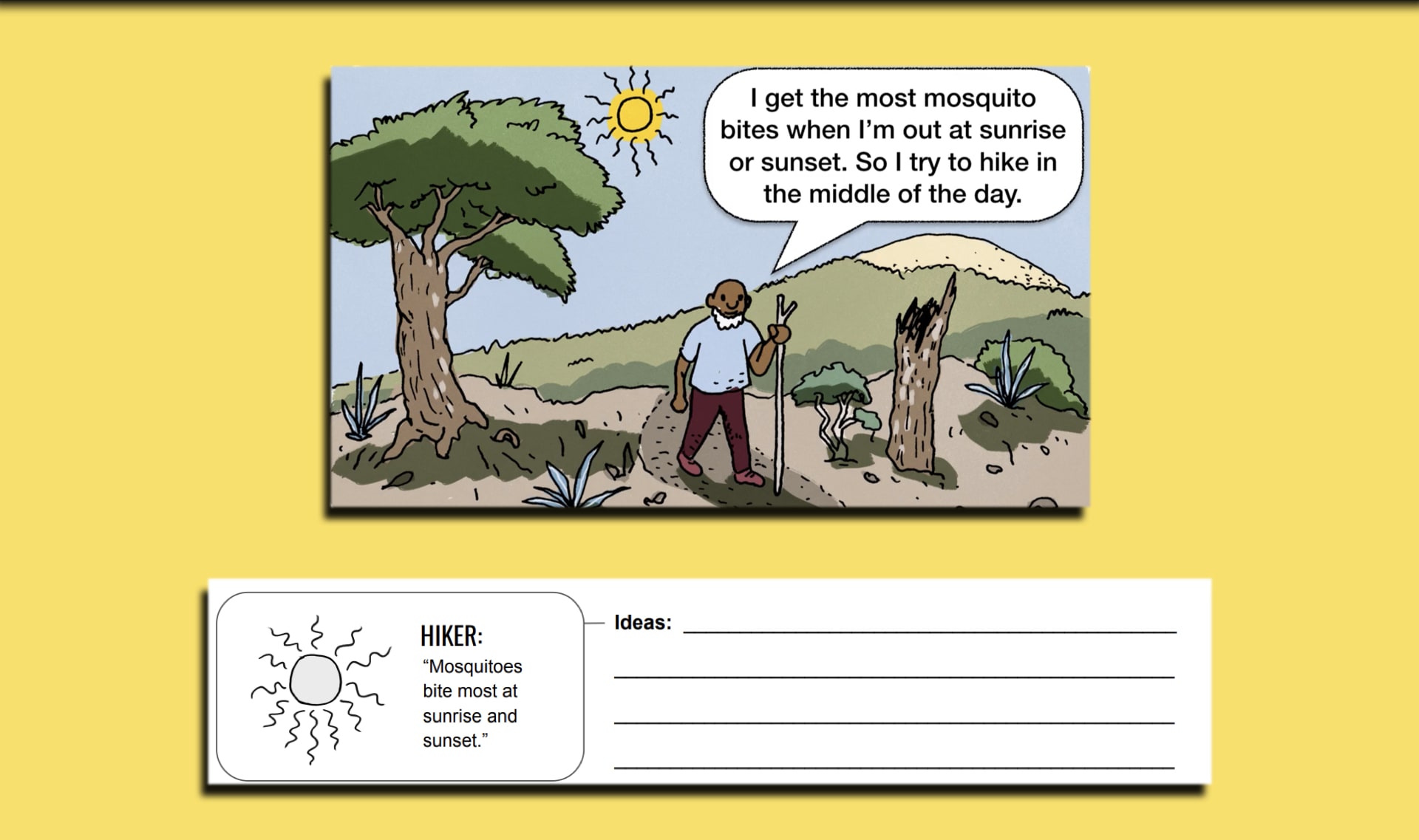
Most mosquitoes come out at sunset and stay out until the next morning. This is
why the hiker got the most bites at sunrise and sunset—that is when mosquitoes
are out. The mosquitoes hide and rest during the day. Then the cycle repeats, over
and over.
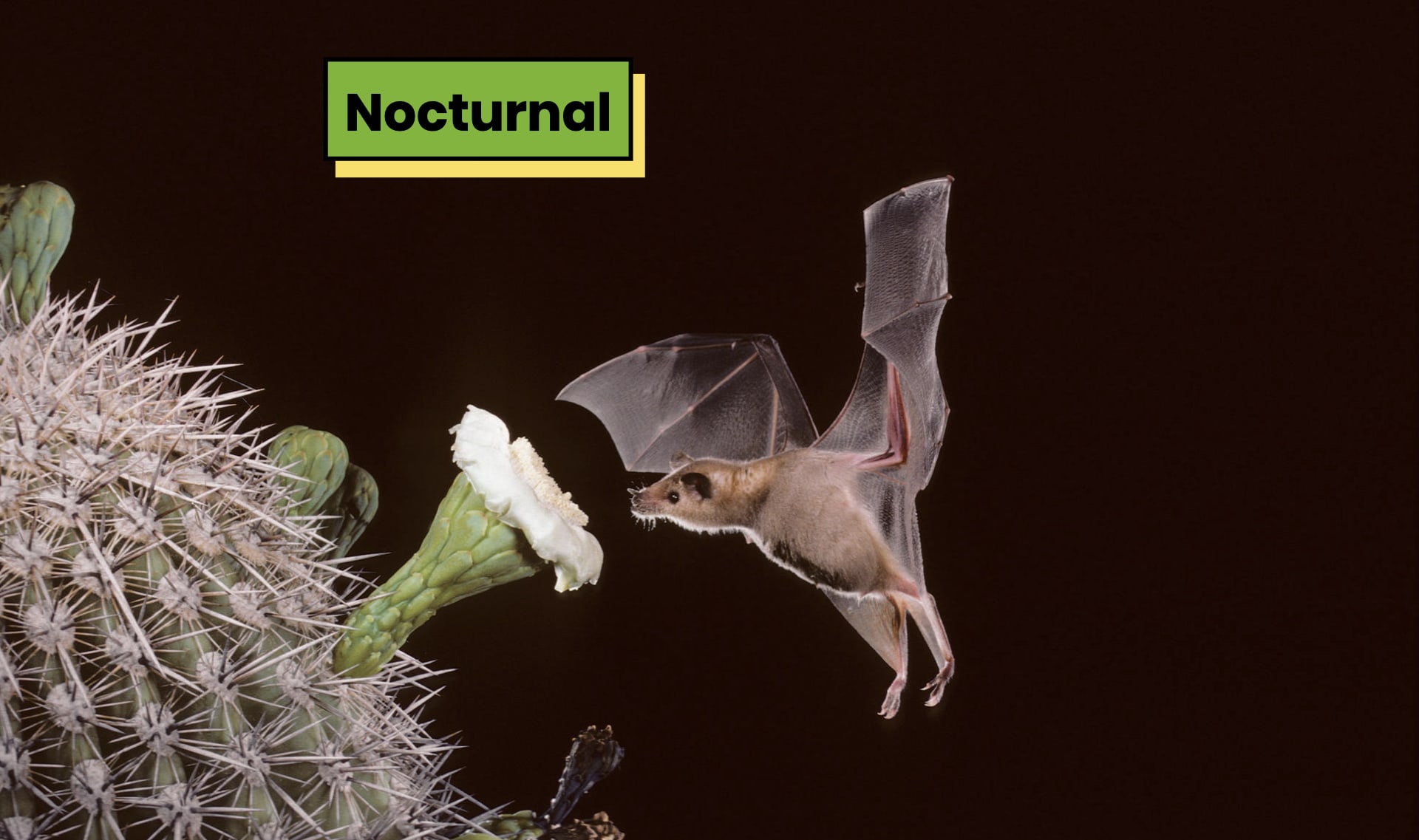
These bats have a similar cycle that repeats every day and night. They sleep all day
and come out at night. Animals that sleep all day and come out at night are called
nocturnal. Nocturnal animals follow the opposite sleep cycle that people do!
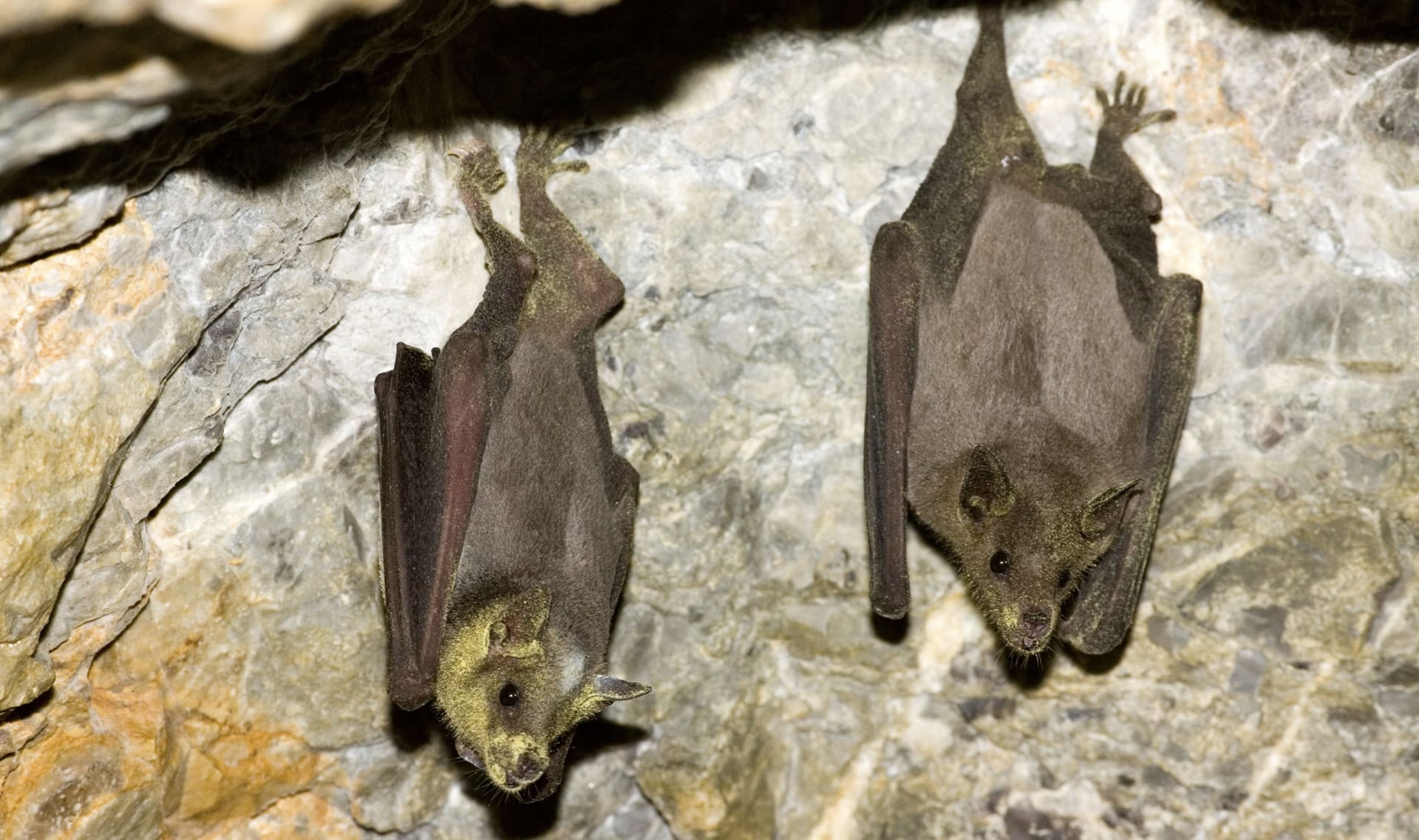
The bats go into caves during the day to rest. This is how they look when they are
in a cave. They hold onto the ceiling of the cave and rest. It is usually very dark in
this cave during the day, but scientists brought a light in to take this picture.
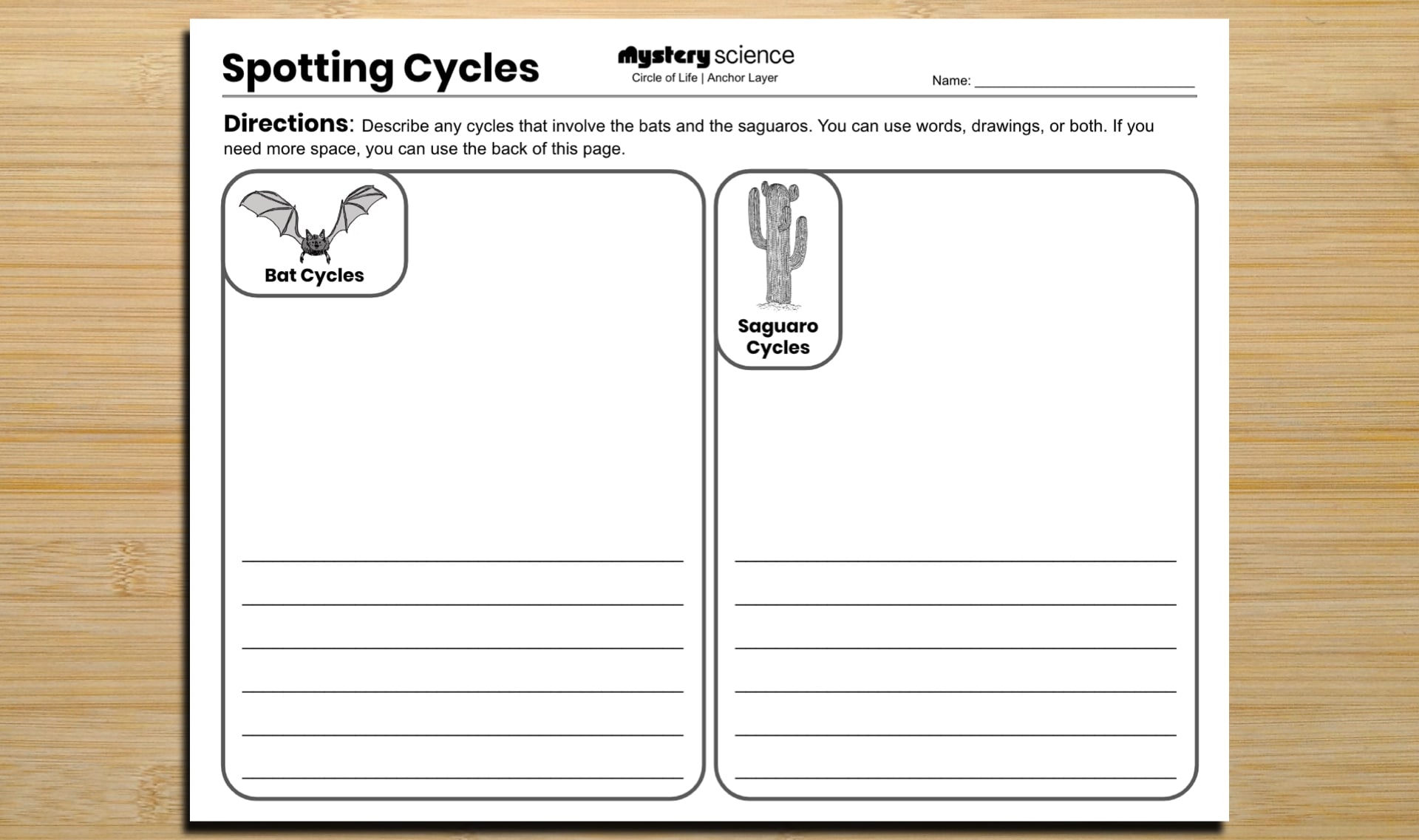
Step
01/03
01/03
Get your Spotting Cycles worksheet. Remember: on this sheet, we
are listing all of the cycles we can find.
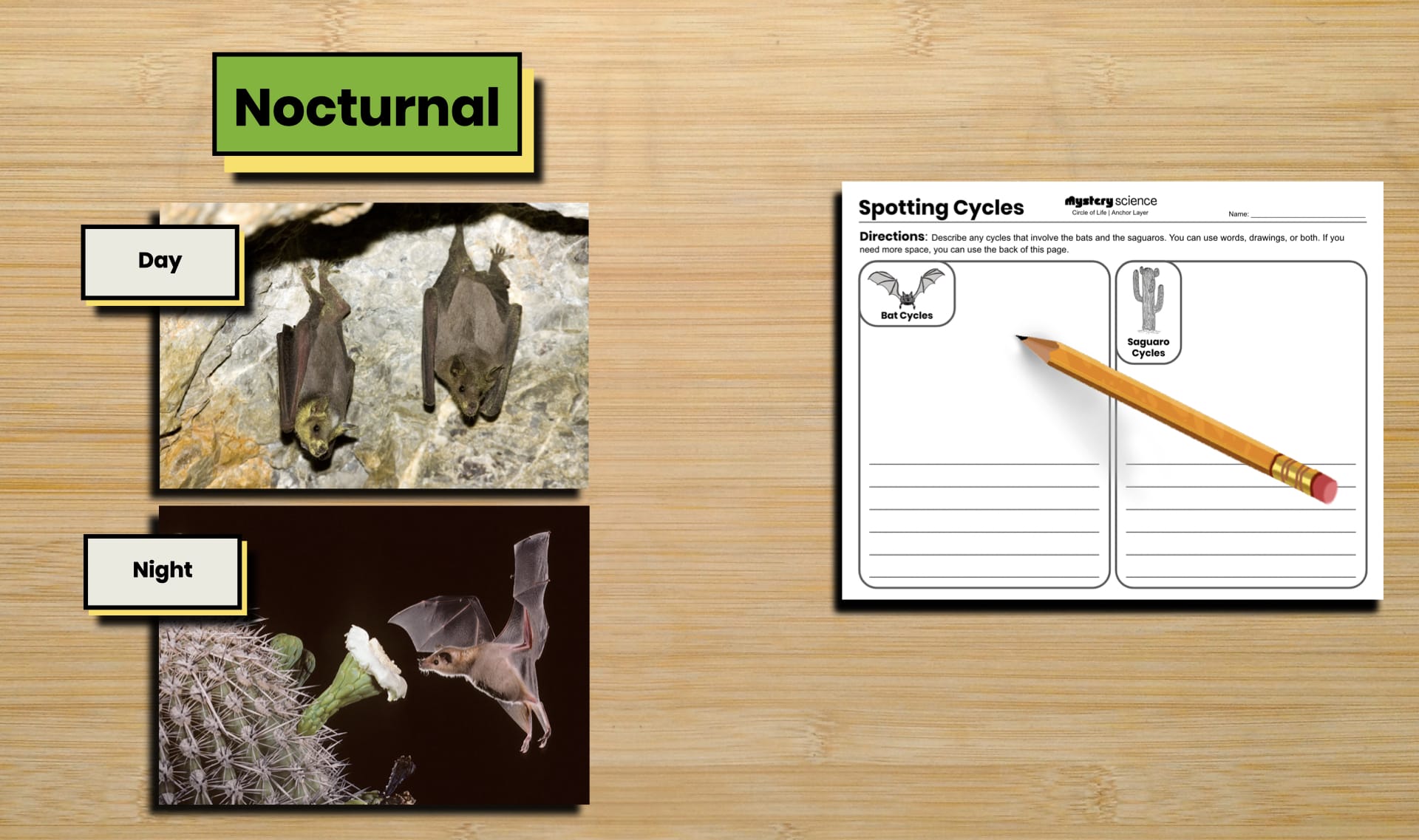
Step
02/03
02/03
In the Bat Cycles box, add what you learned about the day/night
cycle that bats follow. Be sure to mention what the bats do at night,
and where they rest during the day. You can use words, drawings, or
both.
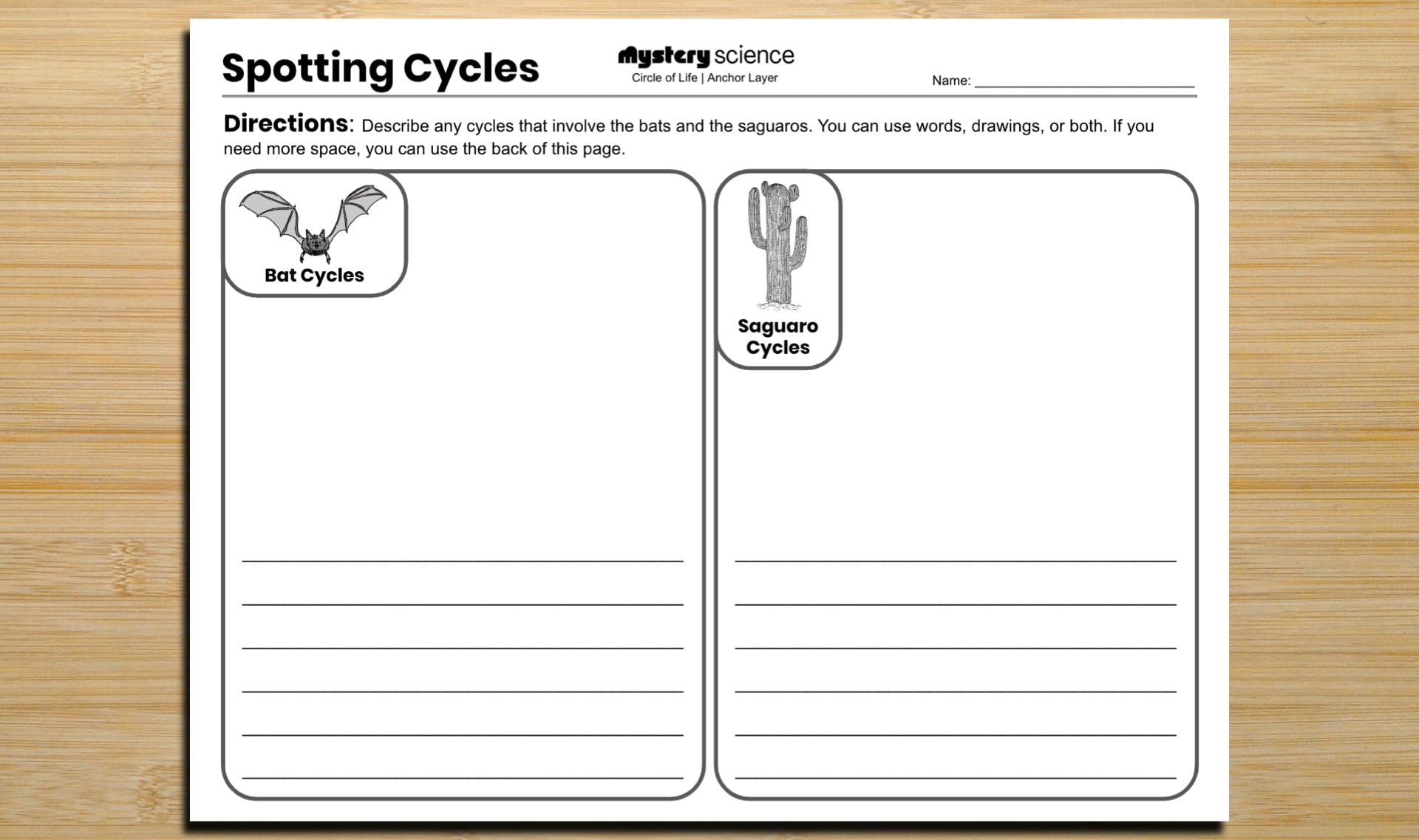
Step
03/03
03/03
Save your Spotting Cycles worksheet. You will update it after the
next lesson in this unit.


swamp
1 of 12
a habitat covered in water and filled with many trees
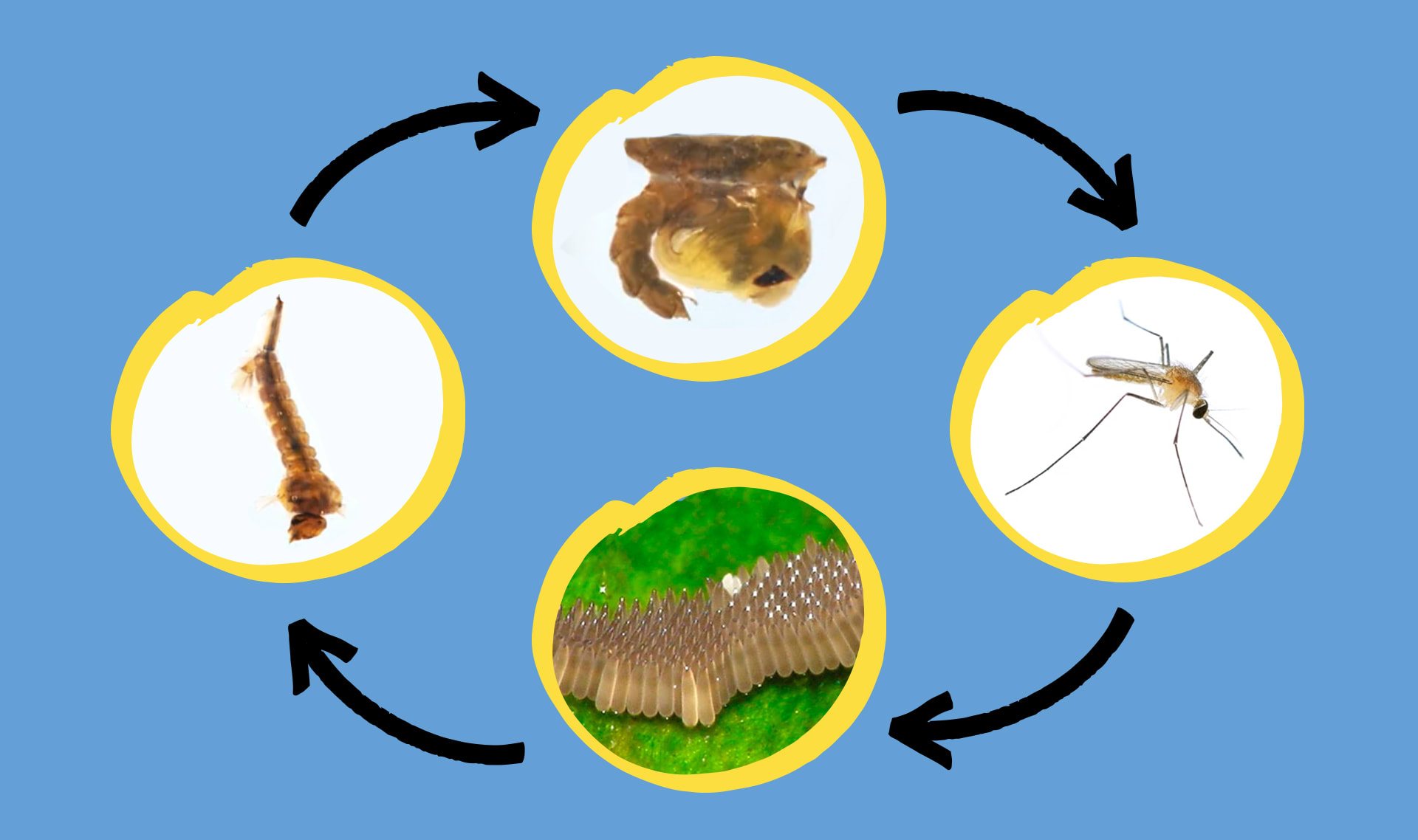
life cycle
2 of 12
the stages of life, including birth, growth, reproduction, and death
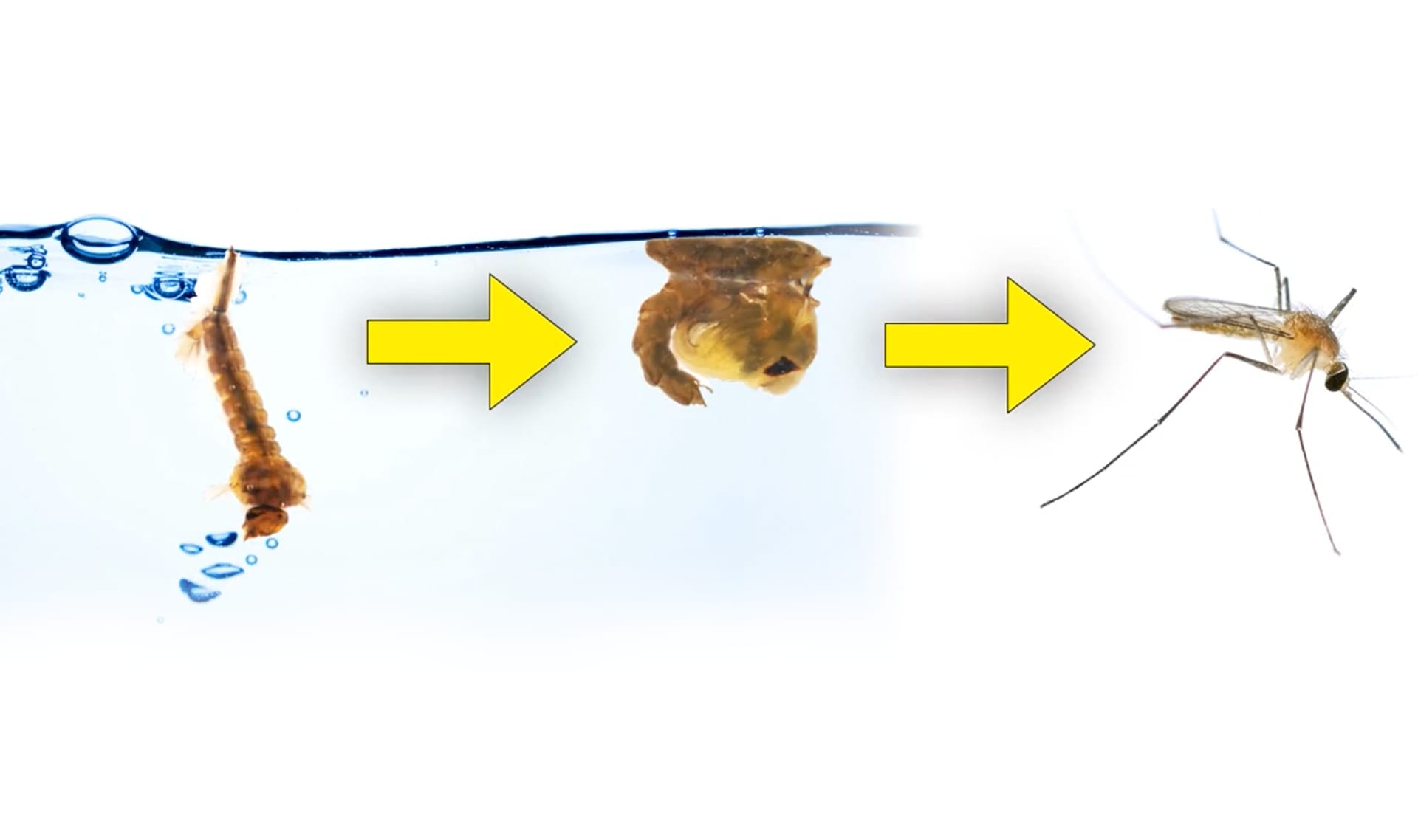
metamorphosis
3 of 12
a process where an animal's body transforms dramatically, such as a mosquito larva turning into an adult
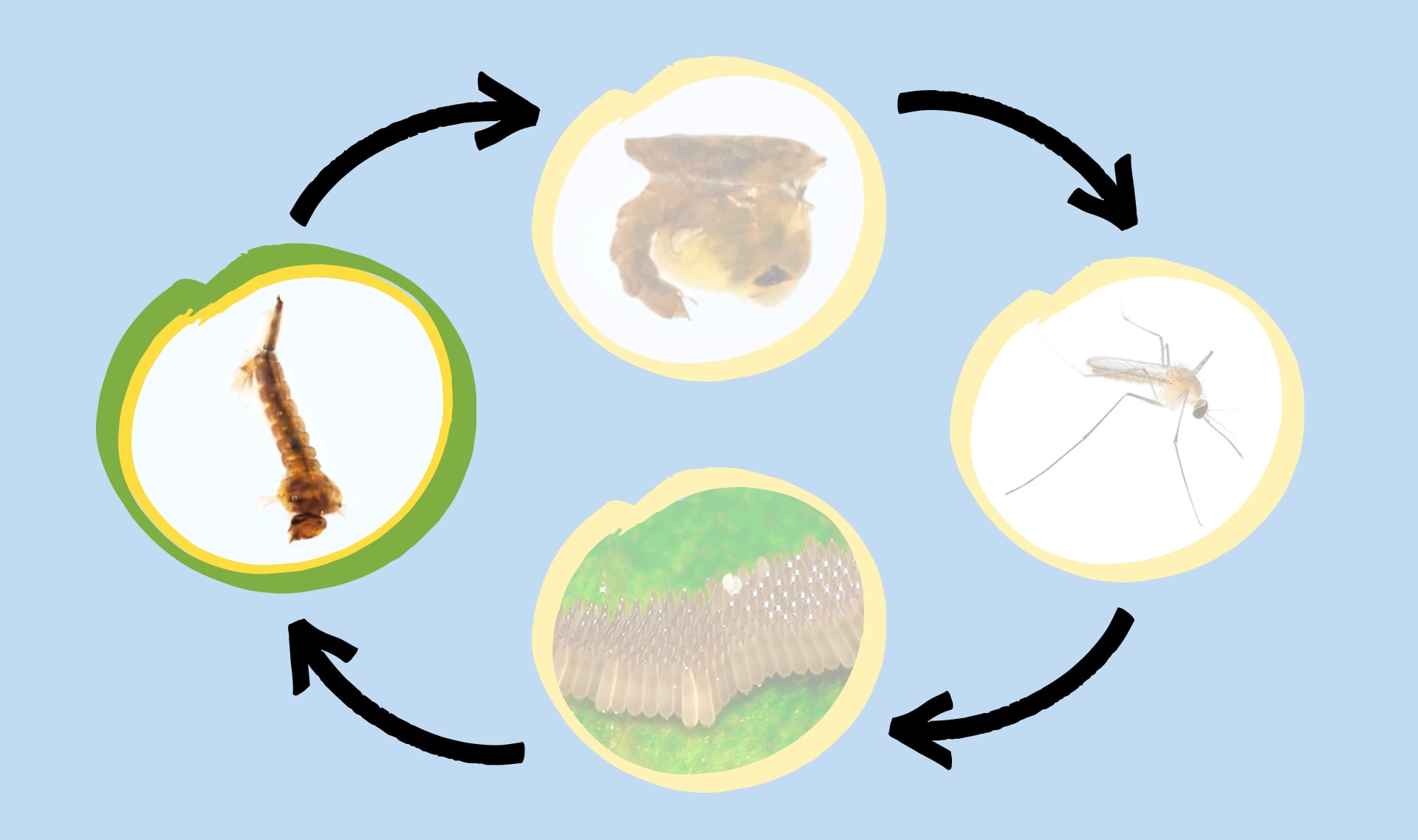
larva
4 of 12
a stage between egg and pupa for living things that go through metamorphosis
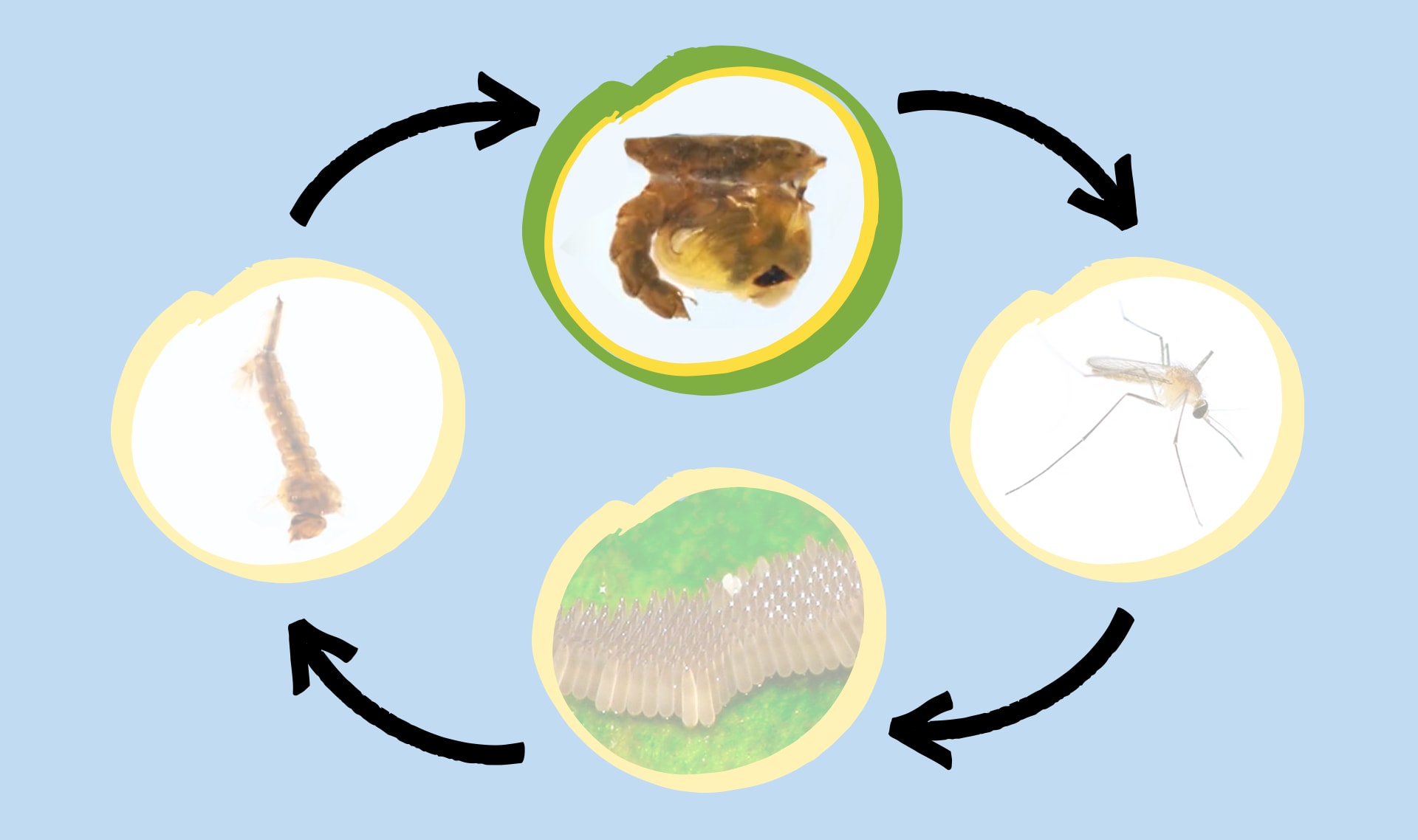
pupa
5 of 12
a life stage between larva and adult for animals that go through metamorphosis

disease
6 of 12
a condition that makes a living thing unhealthy; illness or sickness
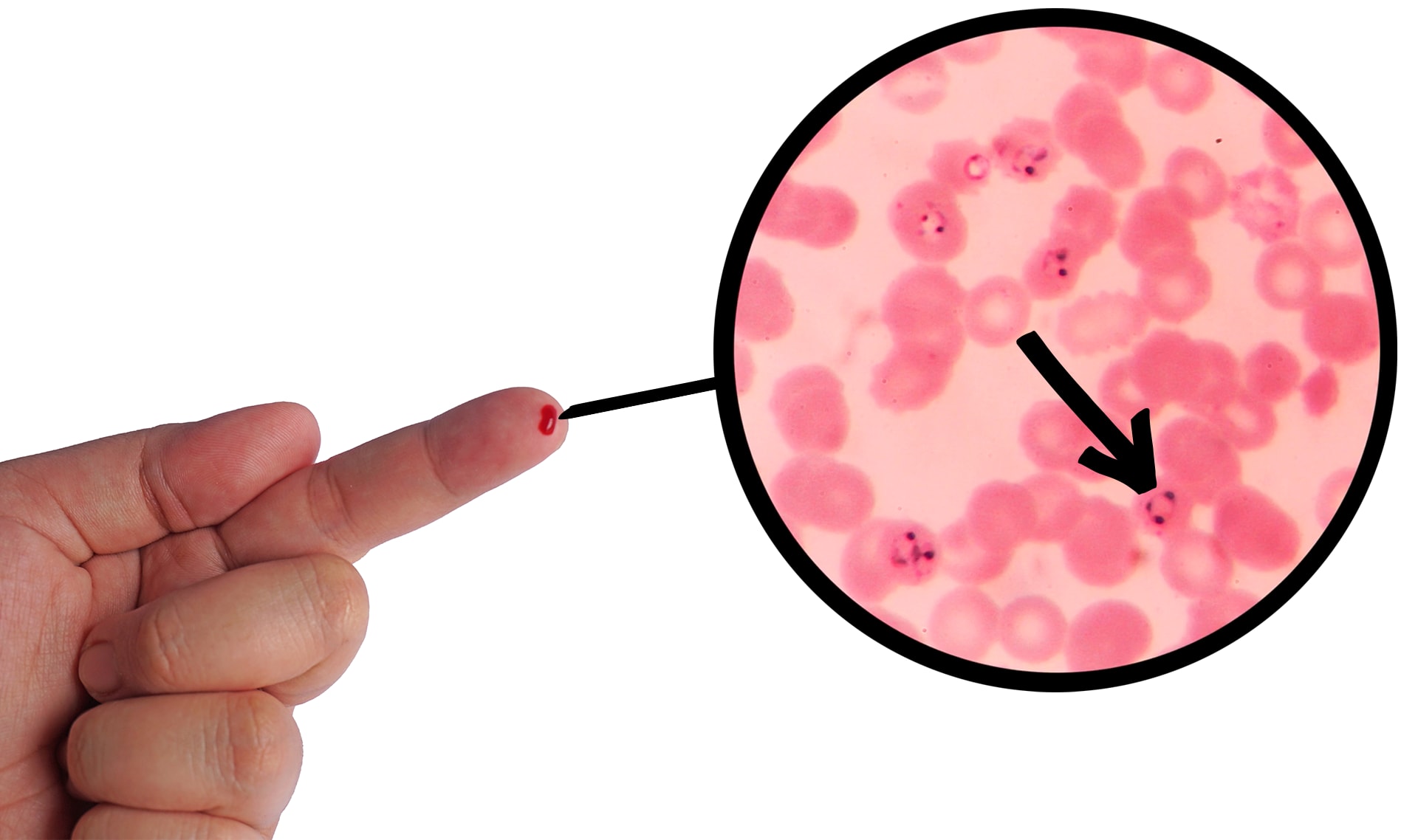
parasite
7 of 12
a living thing that lives in or on another living thing, often causing harm to it
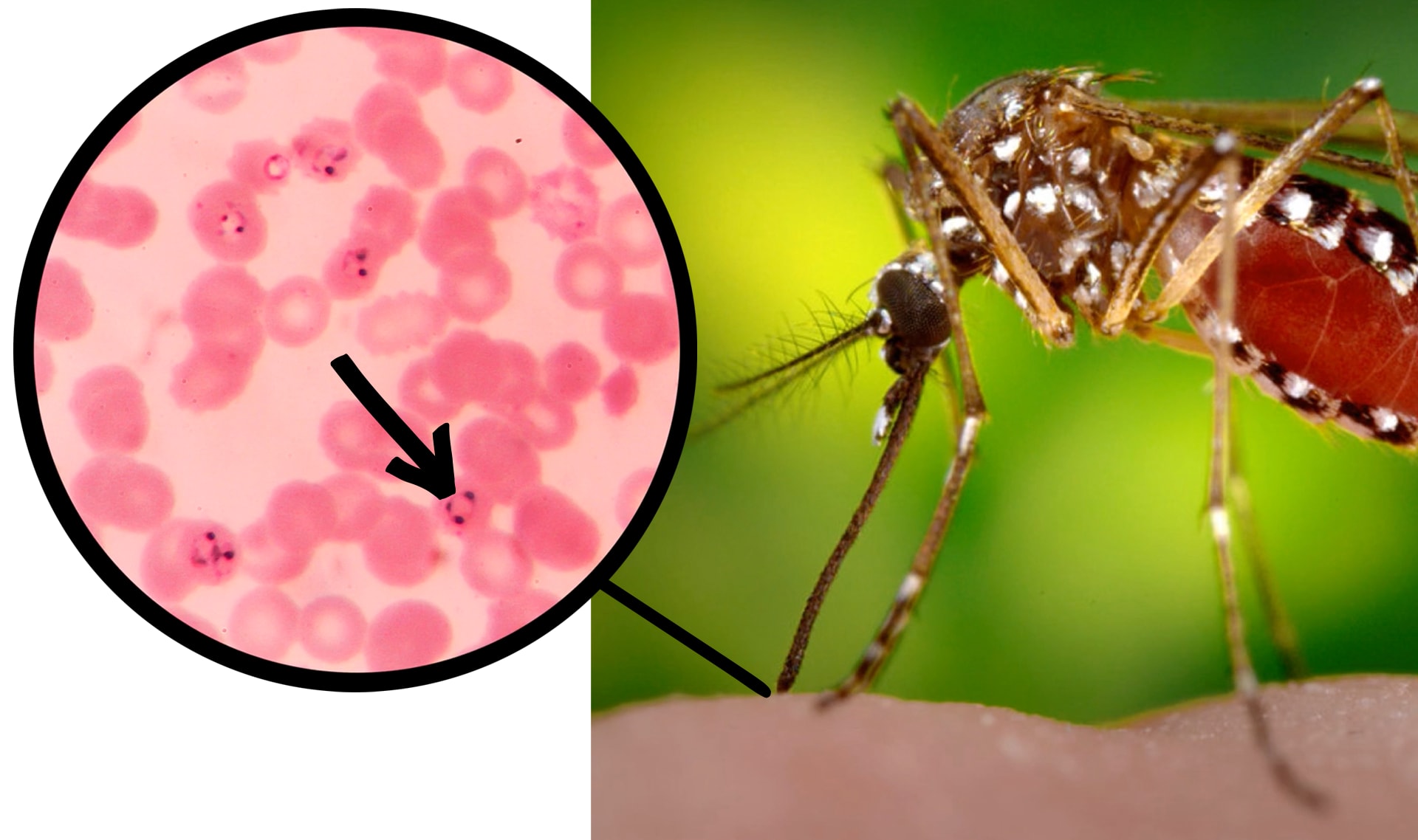
malaria
8 of 12
a disease of the blood caused by parasites that are carried by mosquitoes

observe
9 of 12
to pay close attention to something

design
10 of 12
to make a plan for creating or doing something
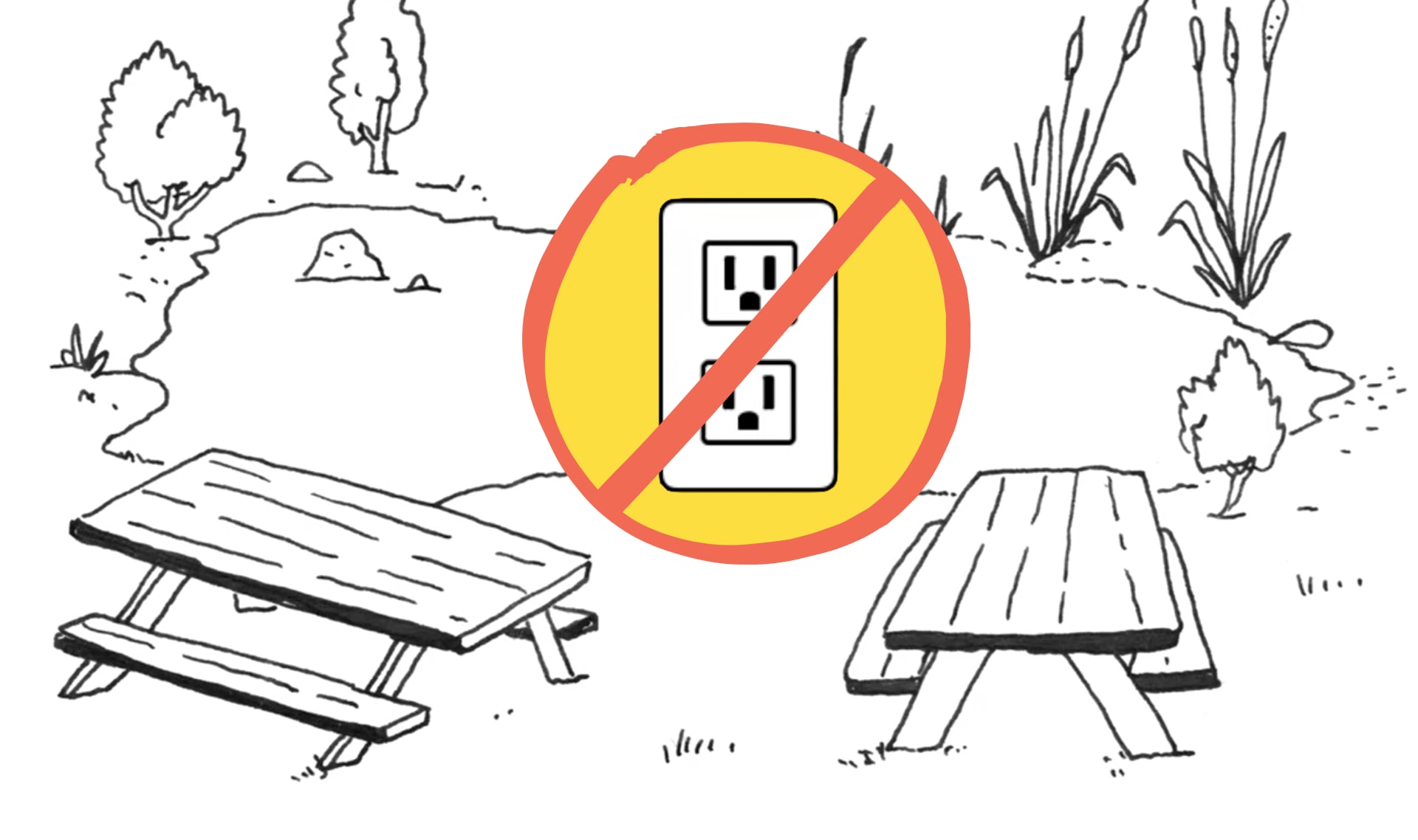
constraint
11 of 12
something that limits what you can do
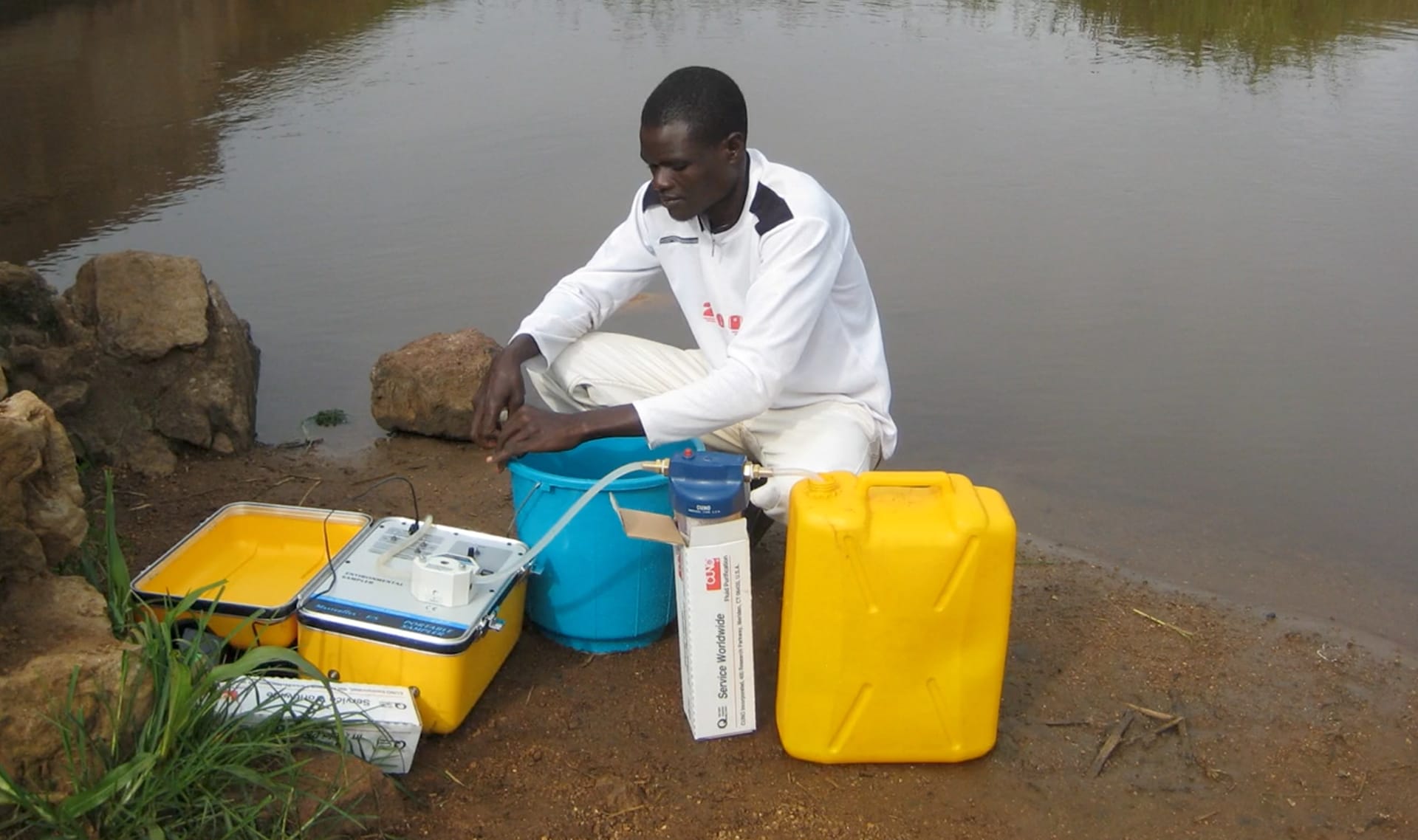
engineer
12 of 12
a person who uses science to come up with solutions to problems
🎉
That’s it for this lesson! How did it go?
Sign up now for more great lessons!
